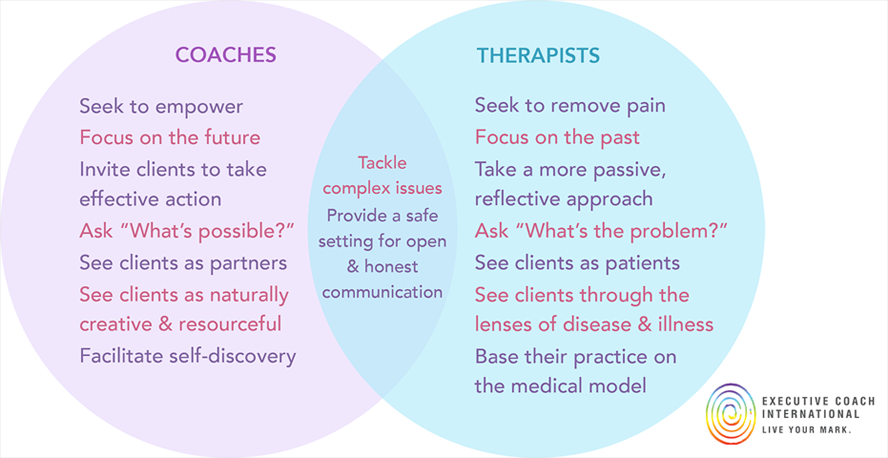What’s the difference between Coaching and Therapy?

Differences in Aims:
Coaches are, broadly speaking, somewhat like architects while therapists are archaeologists. Coaching focuses on advancing a client’s potential, while therapy focuses on curing and healing a client’s unresolved emotional problems.
Differences in Processes:
Though both may refer to past issues (memories of childhood, for instance), coaches use a client’s history mainly as a map to see how a client’s path has evolved to his or her present state. Coaching is more concerned with the gap between the present and envisioned future.
Coaches work hand-in-hand with their clients to reach specific life goals and enhance their growth and development in various domains of life – career, relationships, leadership, finding purpose, finances, health, amongst others. Therapists are assumed to be the experts who diagnose and treat patients, and are therefore in more control of making decisions for their clients.
For coaching, contact with clients between sessions for accountability is expected, while any contact outside of therapy sessions are meant for crises and difficulties only.
Though the list is not exhaustive, these are the main similarities and differences between coaching and therapy.
Important note:
Trained coaches are able to discern when a client requires therapy rather than coaching (e.g. when a client has addictions, are recovering from trauma or face difficulty in day-to-day functioning).

